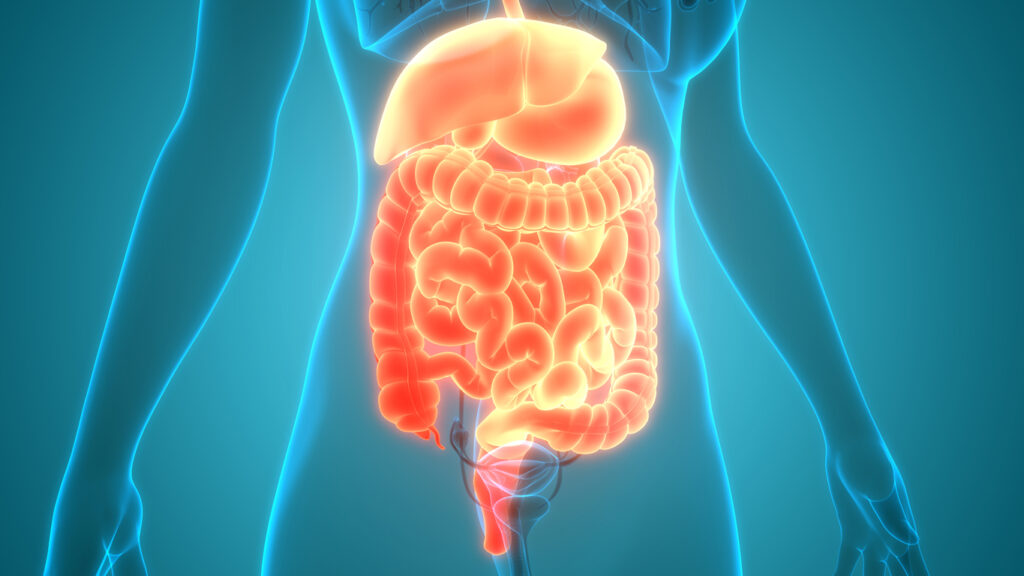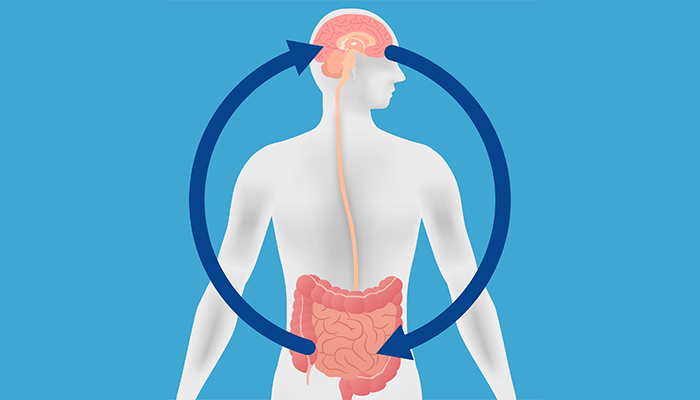Digestive health plays a crucial role in our overall well-being, as it impacts how the body absorbs nutrients, eliminates waste, and maintains energy. The digestive system is responsible for breaking down food, absorbing essential nutrients, and expelling waste. When it functions properly, the body receives the necessary fuel and resources to stay healthy and energetic.
However, if there is an imbalance or dysfunction in the digestive system, it can lead to various health issues. Problems like bloating, constipation, and indigestion are common signs of digestive troubles. These issues can interfere with nutrient absorption and waste elimination, affecting overall health.
Gut health is particularly important, as it is directly linked to the efficiency of the digestive system. Maintaining a balanced digestive system can prevent many health problems and support better energy levels, proper nutrient absorption, and a healthy immune system. Proper care of the digestive system helps the body perform at its best.

What Is Gut Health ?
Gut health refers to the balance and well-being of the gastrointestinal (GI) tract, encompassing the stomach, small intestine, and large intestine. This system is home to a vast microbiome—a community of trillions of bacteria, viruses, fungi, and other microorganisms. These microbes play a crucial role in digestion, immune function, and overall health. The health of your gut is not only determined by the proper functioning of your digestive organs but also by the diversity and balance of the microbes that inhabit your gut.
When the gut microbiome is in balance, it supports the body’s digestive processes and helps maintain a healthy immune system. Beneficial microbes aid in digesting food, producing essential nutrients, and protecting against harmful pathogens. However, an imbalance—known as dysbiosis—can disrupt these functions. Factors such as poor diet, stress, antibiotics, and infections can lead to dysbiosis, resulting in digestive issues and potentially affecting other areas of health.
Maintaining a healthy gut involves supporting the diversity and balance of the microbiome. A diet rich in fiber, prebiotics, and fermented foods can nourish beneficial microbes. Conversely, excessive intake of processed foods, high sugar, and refined carbohydrates can promote the growth of harmful bacteria. Lifestyle factors like regular physical activity, adequate sleep, and stress management also play vital roles in preserving gut health. By fostering a balanced microbiome, you can support digestion, bolster immunity, and enhance overall well-being.
Why Is Gut Health Important for the Body ?
Gut health is integral to overall well-being, influencing not only digestion but also immune function, mental health, and hormone regulation. The gastrointestinal (GI) tract, encompassing the stomach, small intestine, and large intestine, houses a diverse microbiome—a community of trillions of microorganisms including bacteria, viruses, fungi, and other microbes. These microorganisms play a crucial role in digestion, immune function, and overall health. The health of your gut is not only determined by the proper functioning of your digestive organs but also by the diversity and balance of the microbes that inhabit your gut.
Immune Function
Approximately 70% of the immune system resides in the gut. The gut microbiome is essential for the development and functioning of the immune system. It helps the body identify harmful pathogens and triggers appropriate immune responses to fight infections. When gut health is compromised, the immune system can become overactive or weakened, increasing the risk of infections and chronic inflammatory conditions.
Mental Health
The gut-brain connection is a fascinating area of research that highlights the influence of gut health on mental health. The gut produces a significant amount of serotonin, a neurotransmitter that regulates mood, and communicates with the brain via the vagus nerve. An imbalance in gut bacteria has been linked to mood disorders such as anxiety, depression, and even cognitive decline.
Inflammation
Chronic inflammation in the gut is often associated with conditions like irritable bowel syndrome (IBS), inflammatory bowel disease (IBD), and leaky gut syndrome. A healthy gut microbiome helps regulate inflammation and supports the body’s ability to repair itself after injury or illness.
Nutrient Absorption

The gut is responsible for breaking down food and absorbing nutrients. A well-functioning digestive system ensures that the body receives the vitamins, minerals, proteins, fats, and carbohydrates it needs to function properly. An unhealthy gut can impair nutrient absorption, leading to deficiencies that affect overall health.
Hormone Regulation
The gut also plays a role in hormone regulation. It helps balance hormones that influence digestion, metabolism, appetite, and mood. A disrupted gut microbiome can cause imbalances in hormones like insulin, cortisol, and estrogen, contributing to metabolic and hormonal disorders.
What Your Gut Is Telling You: Signs of Poor Digestive Health
Your digestive system and gut microbiome are in constant communication with your body, sending signals when something is amiss. Recognizing these signals is crucial, as they can indicate underlying issues that may affect overall health. Symptoms such as persistent digestive discomfort—including bloating, gas, constipation, or diarrhea—are common indicators of gut imbalance. These issues may stem from factors like poor diet, stress, or infections, leading to a disruption in the gut microbiome’s balance .
Beyond digestive symptoms, an unhealthy gut can manifest in various ways throughout the body. For instance, skin conditions like acne or eczema, frequent fatigue, sleep disturbances, and unexplained weight changes can all be linked to gut health. Additionally, mood disorders such as anxiety and depression have been associated with gut microbiota imbalances, highlighting the gut-brain connection . It’s essential to listen to your body’s signals and address these issues promptly. Maintaining a balanced diet rich in fiber, managing stress, and seeking medical advice when necessary can help restore gut health and prevent more serious conditions.
- Frequent Bloating and Gas
Bloating and excessive gas are common indicators of digestive distress. While occasional bloating may occur after consuming certain foods, persistent or frequent bloating and gas can signal an imbalance in your gut microbiome. Several factors can contribute to these symptoms:
Food Intolerances: Some individuals have difficulty digesting specific foods, such as dairy, gluten, or high-fiber vegetables, leading to bloating and gas. These intolerances may be due to a lack of certain digestive enzymes or sensitivities to particular food components.
Gut Dysbiosis: An imbalance in the gut bacteria, known as dysbiosis, can result in the fermentation of undigested food in the intestines, producing gas as a byproduct. This condition has been linked to various digestive disturbances, including bloating and discomfort.
Irritable Bowel Syndrome (IBS): IBS is a chronic gastrointestinal condition characterized by symptoms like bloating, gas, and changes in bowel movements. The exact cause of IBS remains unknown, but factors such as gut-brain axis disruptions, altered gut motility, and microbiome imbalances are believed to play a role.
Addressing these underlying causes often involves dietary modifications, such as identifying and avoiding trigger foods, and seeking medical advice to manage symptoms effectively.
- Constipation or Diarrhea
Chronic constipation or diarrhea often signals that your digestive system isn’t functioning optimally. These issues can stem from various factors, including gut microbiome imbalances (dysbiosis), which disrupt normal digestion and stool consistency . Conditions like Irritable Bowel Syndrome (IBS) are also common culprits, characterized by alternating bowel habits and abdominal discomfort . Additionally, dietary habits—such as low fiber intake—and certain medications can exacerbate these symptoms. Addressing these underlying causes through dietary adjustments, stress management, and medical consultation is crucial for restoring digestive health.
- Dietary Issues
A diet low in fiber, inadequate hydration, and high consumption of processed foods can disrupt normal bowel movements. Fiber adds bulk to the stool and aids in its passage through the digestive tract. Insufficient fiber intake can lead to constipation, while excessive fiber without adequate water can cause bloating and discomfort. Processed foods often lack essential nutrients and fiber, further exacerbating digestive issues.
- Stress and the Gut-Brain Axis

Stress can significantly impact digestive health by interfering with the communication between the brain and the gut, known as the gut-brain axis. This disruption can alter gut motility and secretion, leading to symptoms like constipation or diarrhea. Chronic stress may also affect the gut microbiota, contributing to digestive discomfort.
- Infections and Inflammation
Gastrointestinal infections, such as food poisoning or gastroenteritis, can cause acute diarrhea. Chronic inflammatory conditions like Inflammatory Bowel Disease (IBD), which includes Crohn’s disease and ulcerative colitis, can lead to persistent diarrhea, constipation, or alternating between both. These conditions involve inflammation of the digestive tract, affecting its ability to function properly.
- Imbalanced Gut Flora
A healthy gut microbiome is essential for proper digestion and bowel regularity. An imbalance in gut bacteria, known as dysbiosis, can disrupt digestion and motility, leading to constipation or diarrhea. Factors contributing to dysbiosis include antibiotic use, poor diet, and certain illnesses.
Fatigue and Low Energy
Persistent fatigue after meals or throughout the day can often be traced back to digestive health issues. When the digestive system struggles to break down food effectively, nutrient absorption is compromised, leading to energy depletion. Conditions like leaky gut syndrome, characterized by increased intestinal permeability, allow harmful substances to enter the bloodstream, triggering systemic inflammation. This chronic inflammation not only disrupts nutrient absorption but also affects various bodily functions, contributing to feelings of tiredness and fatigue. Addressing these digestive concerns through dietary adjustments, stress management, and medical consultation is essential for restoring energy levels and overall well-being.
Unexplained Weight Changes
Unexplained weight fluctuations—whether loss or gain—can often be linked to underlying digestive health issues. An unhealthy gut may impair nutrient absorption, leading to weight loss, or cause the body to absorb excessive calories, contributing to weight gain. Conditions like irritable bowel syndrome (IBS), celiac disease, and thyroid disorders are commonly associated with such weight changes. IBS can lead to weight gain due to dietary restrictions and reduced physical activity, while celiac disease may result in weight loss due to malabsorption. Thyroid dysfunctions, such as hypothyroidism, can cause weight gain due to slowed metabolism, whereas hyperthyroidism can lead to weight loss by increasing metabolism. If you notice unexplained weight changes, it’s essential to consult a healthcare professional for proper diagnosis and management.
Skin Problems (Acne, Eczema, or Rashes)
Your skin often reflects your internal health, and poor gut health can manifest through conditions like acne, eczema, and rashes. This connection, known as the gut-skin axis, involves a complex interplay between your digestive system and skin. An imbalance in gut bacteria (dysbiosis) can trigger systemic inflammation, which may present as skin problems. Additionally, an unhealthy gut can contribute to hormonal imbalances, further affecting skin health. Maintaining a healthy gut is essential for clear, vibrant skin.
Chronic Heartburn or Acid Reflux

Frequent heartburn or acid reflux occurs when stomach acid flows back into the esophagus, causing irritation and discomfort. This condition can be triggered by several factors:
Dietary Choices: Consuming acidic, spicy, or high-fat foods like citrus fruits, tomatoes, chocolate, coffee, and peppermint can relax the lower esophageal sphincter (LES), allowing acid to reflux into the esophagus.
Cedars-Sinai
Obesity: Excess weight increases abdominal pressure, which can push stomach contents upward, leading to acid reflux.
Mayo Clinic
Hiatal Hernia: This condition, where part of the stomach bulges into the chest cavity, can impair the LES’s ability to prevent acid reflux.
Mayo Clinic
Medications: Certain drugs, including pain relievers, blood pressure medications, and some antidepressants, can relax the LES or irritate the esophagus, exacerbating reflux symptoms.
St. Vincent’s
Lifestyle Factors: Smoking, alcohol consumption, and lying down immediately after meals can weaken the LES and increase the risk of acid reflux.
Managing these triggers through dietary modifications, weight management, and lifestyle changes can help alleviate symptoms of heartburn and acid reflux.
Mood Swings and Anxiety
The gut-brain connection plays a crucial role in overall health. An imbalance in gut bacteria has been linked to mood disorders like anxiety and depression. Specifically, a lack of beneficial gut bacteria can affect serotonin production, a neurotransmitter responsible for regulating mood. Low serotonin levels may lead to feelings of anxiety, irritability, or depression. Maintaining a healthy gut microbiome is essential for supporting mental well-being and emotional stability. By nurturing gut health, it is possible to improve mood and reduce symptoms of mental health conditions.
Food Sensitivities or Intolerances
If certain foods consistently upset your stomach, it could signal an issue with your digestive system. Food intolerances, like lactose intolerance or gluten sensitivity, occur when the body struggles to process certain foods. These intolerances can lead to symptoms such as bloating, cramping, diarrhea, and discomfort. When the body cannot properly break down specific food components, it results in digestive distress. Recognizing and addressing food intolerances can help improve digestion and prevent uncomfortable symptoms. A balanced diet and identifying triggers are key to managing these issues effectively.
Bad Breath (Halitosis)
Persistent bad breath, also known as halitosis, can indicate digestive issues, especially when accompanied by symptoms like bloating and acid reflux. This condition may result from the fermentation of food particles in the stomach or small intestine, often linked to poor gut health. When the digestive system struggles to break down food properly, it can lead to the buildup of odor-causing compounds, resulting in bad breath. Addressing underlying digestive problems, such as gut imbalances or acid reflux, can help improve breath and overall digestive health.
Autoimmune Conditions

An unhealthy gut can play a role in autoimmune diseases, where the immune system attacks healthy cells in the body. Conditions such as Hashimoto’s thyroiditis, rheumatoid arthritis, and type 1 diabetes have been linked to dysbiosis, an imbalance in the gut microbiome. When gut health is compromised, it can trigger immune system dysfunction, leading to these conditions. If you’re experiencing autoimmune symptoms, it’s important to consider the health of your gut as a potential contributing factor. Addressing gut imbalances may help manage autoimmune disease symptoms.
Conclusion
In conclusion, gut health plays a vital role in overall well-being and can significantly impact various bodily functions. The gut is responsible for digestion, nutrient absorption, and immune function, while also influencing mood, skin health, and weight management. When the balance of the gut microbiome is disrupted, it can lead to a range of issues, from digestive distress to chronic health conditions.
Addressing gut health through dietary choices, stress management, and possibly supplementation can help restore balance and improve digestion. Paying attention to symptoms like bloating, fatigue, and digestive irregularities can offer valuable insights into your gut’s condition. Making conscious efforts to support gut health can lead to better digestion, increased energy, and a stronger immune system.
By nurturing your gut, you’re not only supporting digestion but also improving overall health and vitality. A healthy gut is a foundation for a healthier body, which is why maintaining gut balance should be a priority in maintaining long-term wellness.
FAQs
- What foods should I avoid for better digestive health ?
Avoid processed foods, refined grains (like white bread), fried and fatty foods, dairy (if lactose intolerant), artificial sweeteners, and excessive alcohol. These can disrupt gut bacteria and cause digestive issues like bloating and acid reflux.
- How long does it take to heal your gut after making dietary changes ?
It usually takes about 3 to 6 weeks to notice improvements in digestion. For chronic conditions like IBS or leaky gut, it may take several months of consistent dietary changes to see significant healing.
- Can stress really affect my gut health ?
Yes, stress can disrupt digestion by altering gut bacteria and increasing inflammation, leading to symptoms like bloating, constipation, and diarrhea. Managing stress is crucial for maintaining a healthy gut.
- Can gut health affect my immune system ?
Yes, about 70% of the immune system is in the gut. A healthy gut microbiome supports immune function, while an imbalanced gut can lead to immune issues and increased inflammation.
- Are there any natural remedies for gut health issues ?
Yes, probiotics (yogurt, kefir), prebiotics (garlic, bananas), herbal teas (ginger, peppermint), bone broth, and slippery elm can help improve gut health by promoting digestion and reducing inflammation.


